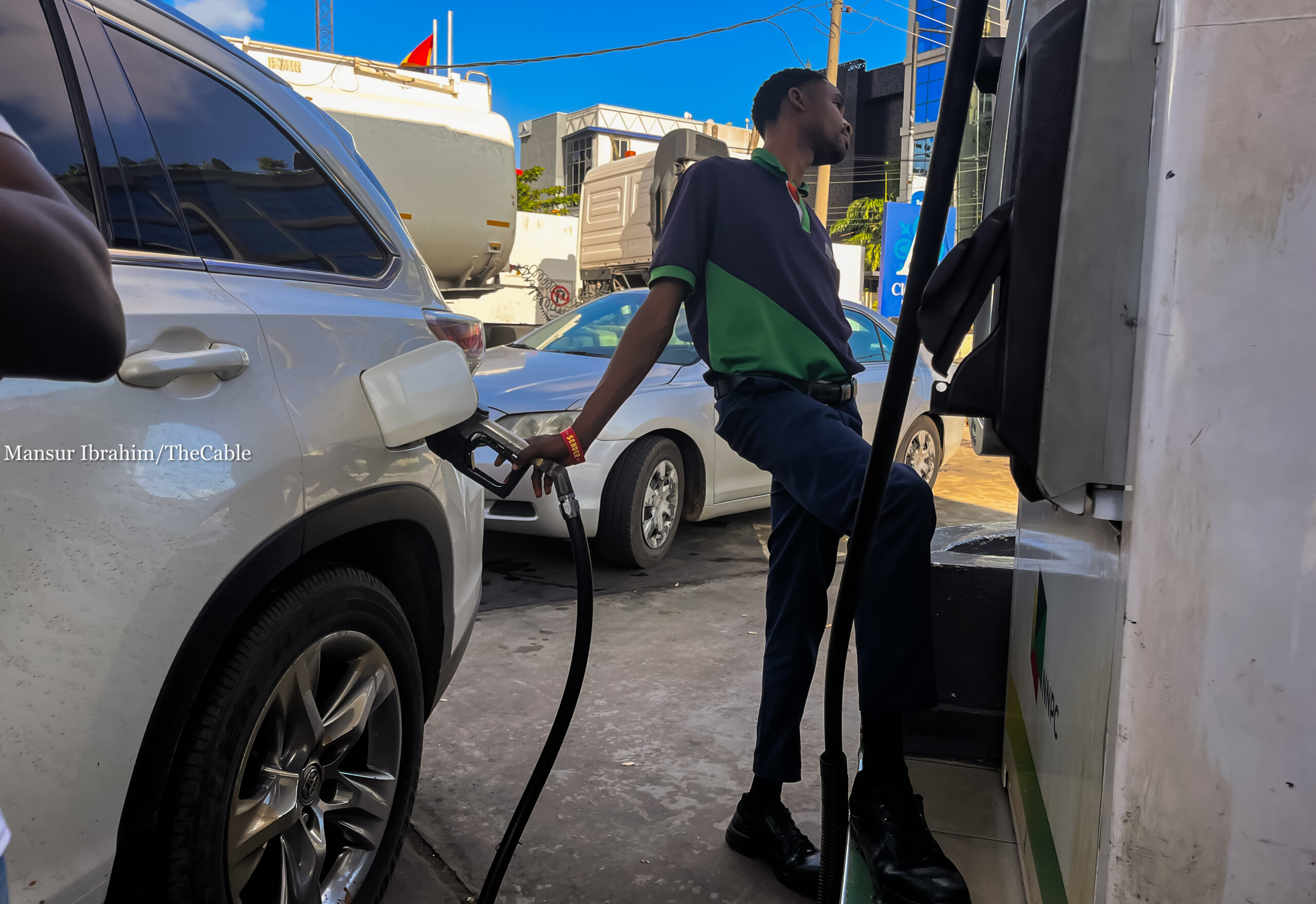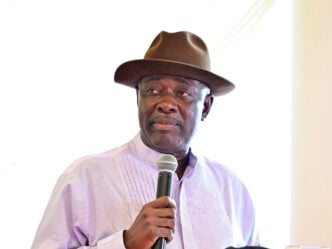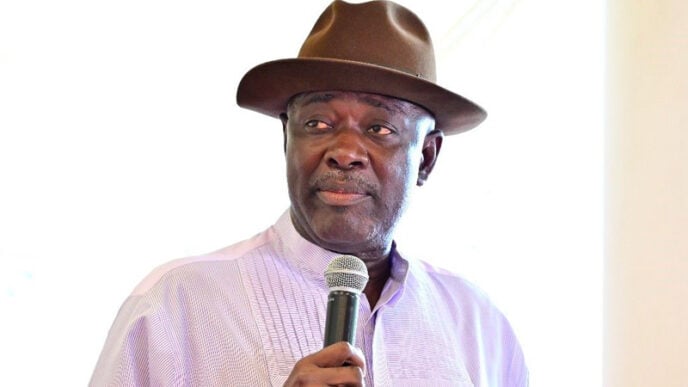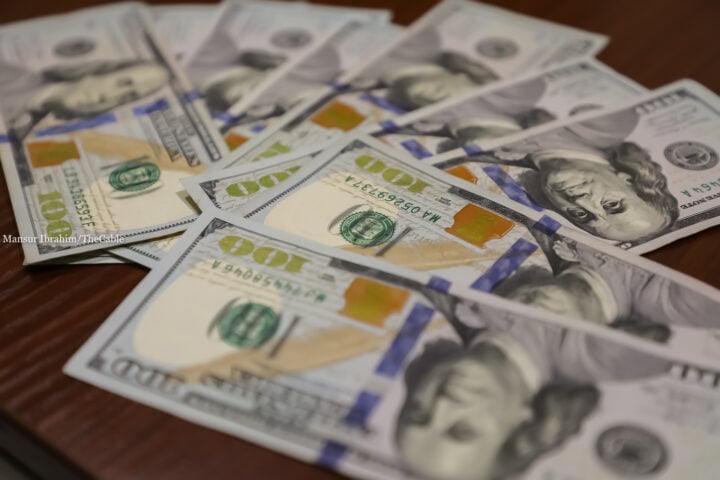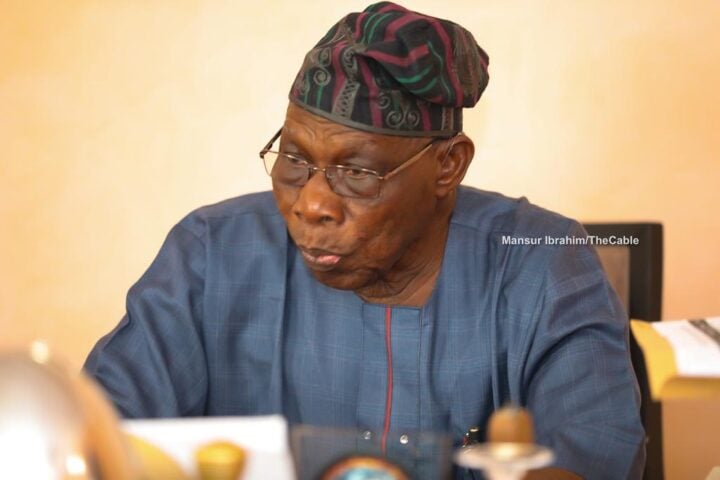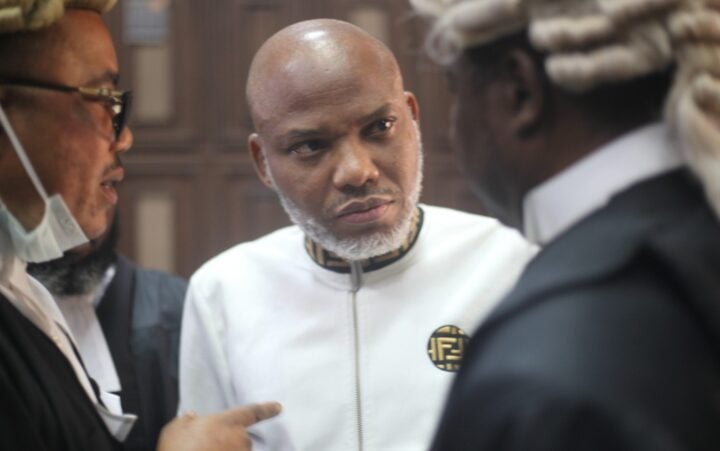The Lagos Chamber of Commerce and Industry (LCCI) has expressed concern over the recent hike in petrol pump prices across Nigeria.
On Wednesday, the Nigerian National Petroleum Company (NNPC) Limited increased the price of petrol across its retail outlets.
In Lagos, petrol prices jumped to N998 per litre, while in Abuja, the price rose to N1,003.
In a statement on Friday, Gabriel Idahosa, president of LCCI, urged the government to clarify if petrol subsidy has been removed entirely or partially.
Advertisement
Idahosa said the price hike might be part of the government’s intention to fully deregulate the oil and gas sector and implement a complete petrol subsidy removal policy.
He, however, said the controversies surrounding the policy contribute significantly to the distortions in the business environment.
“We try to understand that the recent fuel price hikes could be government’s intention to fully deregulate the oil and gas sector and implement a complete fuel subsidy removal policy,” Idahosa said.
Advertisement
“However, the dynamics and controversies around these steps create most of the distortions we experience in the business environment, making businesses operate under dark clouds of uncertainties.
“It has become difficult to understand the plans and moves taken by the ministry of petroleum resources, the Nigerian National Petroleum Corporation Limited, and the various oil and gas sector regulators in the face of recent happenings.
“The controversies surrounding the working relationship between NNPCL and the Dangote Refinery are equally confusing.”
The LCCI president said since the current administration came into power, petrol prices have risen by approximately 430 percent.
Advertisement
‘BUSINESSES WILL CONTINUE TO SUFFER DUE TO HARSH REGULATORY ECOSYSTEM’
Idahosa said businesses have continued to grapple with escalating operating costs, including rising logistics and power supply expenses, as well as a shortage of foreign exchange (FX) for critical imports.
He said these may worsen in the coming months due to a thriving speculative environment, harsh regulatory ecosystem, unguided controversies, persistent insecurity challenges, and weakening purchasing power that restrains demand for goods and services.
“With the CBN’s monetary policy rate at 27.25 percent (with allowance up to about 34%), inflation elevated at 32.15 percent (August 2024), an exchange rate above N1620 per USD Dollar, and an unemployment rate at 5.3 percent, we run a business environment that is too tense for businesses to thrive,” he said.
Advertisement
“Addressing these challenges will require a multi-pronged approach involving social, political, and economic considerations.
“The government must come out clean on whether fuel subsidies have been removed entirely or partially.
Advertisement
“The regulatory agencies in the oil and gas sector should let us know what quantity of fuel is consumed locally in Nigeria.
“We must increase crude oil production and reduce oil theft to ensure our crude does not get to neighbouring countries where they are refined and imported back to Nigeria.”
Advertisement
LCCI RECOMMENDATIONS TO CUSHION EFFECTS OF TIGHTENING ECONOMY
Idahosa also recommended the implementation of the Petroleum Industry Act (PIA) to support a fully deregulated oil and gas sector, thereby reducing uncertainties and irregularities, enhancing contract sanctity and attracting foreign investment.
Advertisement
Additionally, the LCCI president recommended that savings from the subsidy removal should be channelled into building infrastructure to cushion the impact of the tightening economy.
He also called for fiscal stimulus and non-cash interventions to offset the challenges posed by the government’s tight monetary policy.
Idahosa called on the government to remain committed and proactive in implementing ongoing measures, such as the removal of certain taxes, the shift to compressed natural gas (CNG) mobility, the crude-for-naira initiative, and the suspension of specific import duties.
Speaking on CNG mobility, he urged the government to back ongoing initiatives with nationwide CNG refuelling stations and credit facilities to accelerate the transition.
‘PEG EXCHANGE RATE AT N1,000/$’
Idahosa proposed pegging the foreign exchange rate for import duties at N1,000/$ to provide much-needed fiscal stimulus.
According to the LCCI president, it would stabilise costs for manufacturers who rely on imports, boosting productivity and enabling long-term planning.
Also, he said a fixed rate would lower production costs, leading to increased output and job creation.
“It would also benefit the broader economy by fostering growth in related sectors like logistics and retail, ultimately supporting Nigeria’s economic stability and expansion,” Idahosa said.
“Further, LCCI proposes that crude oil supplied to refineries in Naira be pegged at an exchange rate of N1000 to 1 USD. This would significantly lower the cost of petrol for end users, thereby reducing logistics and transportation expenses.
“The ripple effect would stimulate economic activity and help alleviate the current financial hardships faced by Nigerians. It will also significantly contribute to the reduction in food inflation since transport costs are a major component of food production and delivery costs.”
Idahosa urged the government to provide clear guidance on its policy direction and outline achievable near-term goals to build some level of certainty and support business planning.
Add a comment
